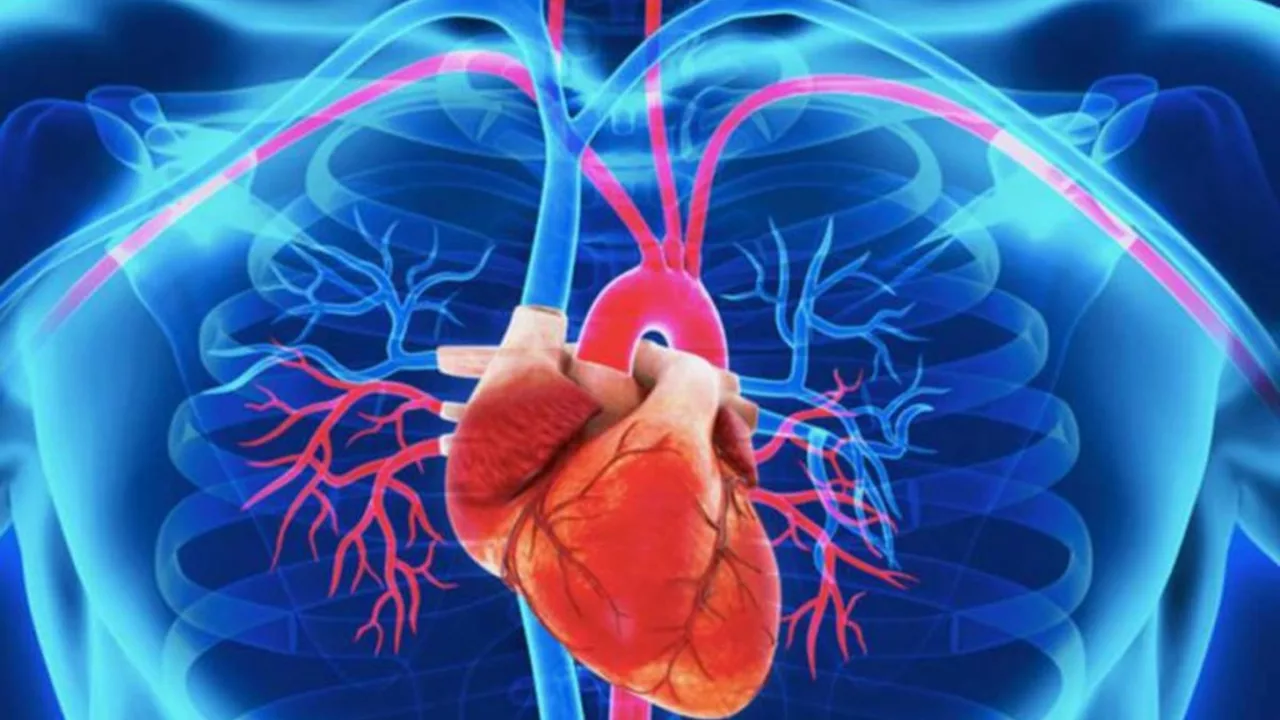Understanding Cardiovascular Diseases
Before delving into the specifics of how Chlorthalidone can help prevent cardiovascular diseases, it's essential to have a basic understanding of what these diseases are. Cardiovascular diseases are a class of diseases that involve the heart or blood vessels. They include conditions such as coronary artery disease, heart failure, congenital heart disease, and stroke, among others. These ailments are among the leading causes of death worldwide. The World Health Organization (WHO) estimates that 17.9 million people die each year from cardiovascular diseases, accounting for 31% of all global deaths. The good news is that many of these diseases are preventable with a healthy lifestyle and proper medication.
Introduction to Chlorthalidone
Among the various medications available for the prevention of cardiovascular diseases, Chlorthalidone stands out. Chlorthalidone is a medication that is commonly used to treat high blood pressure and fluid retention. It belongs to a class of drugs called 'diuretics' or 'water pills' that help your body get rid of extra salt and water. While its primary use is to treat hypertension and edema, recent studies suggest that Chlorthalidone may also help in preventing cardiovascular diseases. But how does it do this? Let's delve deeper.
Chlorthalidone and Blood Pressure Control
High blood pressure, or hypertension, is a significant risk factor for cardiovascular diseases. When your blood pressure is high, your heart has to work harder to pump blood, which can lead to heart disease. Chlorthalidone helps control blood pressure by making your kidneys eliminate excess water and salt from your body. This process reduces the volume of blood that your heart has to pump, effectively reducing blood pressure. By managing blood pressure, Chlorthalidone indirectly helps in preventing the onset of cardiovascular diseases.
Chlorthalidone and Heart Failure Prevention
Heart failure is a condition in which the heart can't pump enough blood to meet the body's needs. Chlorthalidone can potentially help prevent heart failure. It does this by reducing fluid buildup in the body, a common cause of heart failure. By eliminating excess fluid and salt, the medication can prevent the heart from having to work too hard, which could eventually lead to heart failure. Thus, Chlorthalidone plays a crucial role in preventing heart failure, a significant type of cardiovascular disease.
Chlorthalidone: A Pillar in Cardiovascular Disease Prevention
Chlorthalidone, with its dual capabilities of controlling blood pressure and preventing heart failure, has proven to be a significant player in the prevention of cardiovascular diseases. However, while Chlorthalidone is a powerful medication, it's important to remember that it's only one part of a holistic approach to prevent cardiovascular diseases. Lifestyle modifications such as a healthy diet, regular exercise, and quitting smoking are equally important. With the right combination of medication and lifestyle changes, the risk of cardiovascular diseases can be significantly reduced. As always, you should consult with your healthcare provider before starting any new medication or making any changes to your current treatment plan.


Erin DeGroot
June 28, 2023 AT 00:53Chlorthalidone isn't just another pill - it's a quiet hero for so many people who don't even realize how much their blood pressure was slowly killing them. I watched my mom take it for years after her stroke, and she went from barely walking to gardening again. No drama, no hype, just steady, reliable work. It’s not glamorous, but sometimes the most powerful things aren't.
Stephanie Bryant
June 28, 2023 AT 02:42OMG I just started this med last month 😭 my BP was 180/110 and now it’s 125/78!! I didn’t think it’d work this fast but my dr said it’s one of the most effective for long-term protection 🙌 also side effects? Barely any. I just pee a lot lol 🚽💧
Drashti patel
June 28, 2023 AT 18:29It’s funny how we reduce medicine to a chemical reaction when it’s really about balance - not just salt and water, but rhythm. The body isn’t a machine you fix with a wrench; it’s a river, and chlorthalidone doesn’t stop the flow, it just redirects the sediment. We call it a diuretic, but what if it’s really a teacher? Teaching the heart to rest, the vessels to breathe. Maybe prevention isn’t about fighting disease… but listening to it. And letting it speak its truth before it screams.
Kaitlin Crockett
June 29, 2023 AT 08:50Studies show chlorthalidone outperforms hydrochlorothiazide in long-term CVD reduction. Dose matters - 12.5–25 mg daily is standard. Don’t skip lab checks for potassium.
Tracy Blake
June 30, 2023 AT 07:38Think about it - we live in a world where we optimize our coffee, our sleep cycles, our Instagram feeds… but when it comes to our hearts, we wait until the alarm blares. Chlorthalidone is the silent monk in the corner of the hospital - no fanfare, no viral TikTok, just decades of data whispering: ‘You didn’t have to wait for the collapse.’ It’s not a miracle. It’s a mirror. It reflects the choices we made before we even knew we had a choice. And maybe that’s the real medicine - not the pill, but the moment we stop pretending we’re invincible. We’re not. But we can be careful. And sometimes, careful is enough.